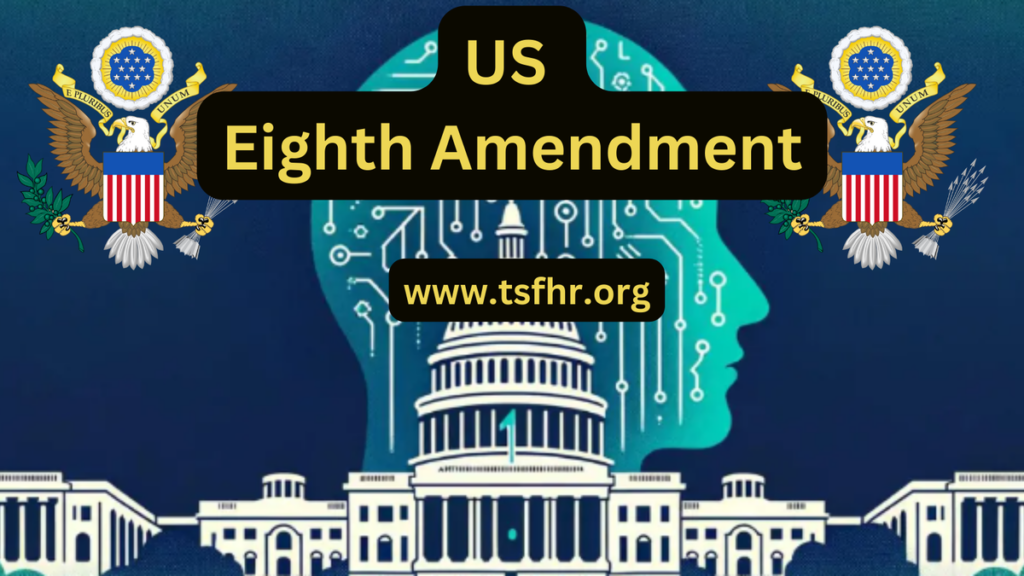What is the 8th Amendment in Simple Terms: (8th Amendment, eighth amendment, amendment 8, 8th amendment simplified, cruel and unusual punishment amendment) Discover what the 8th Amendment means in simple terms. Explore its creation, importance, examples, and how it protects against cruel punishments and excessive fines in this detailed 2024 guide.
What is the 8th Amendment in Simple Terms?
Have you ever wondered why punishments in the U.S. justice system have limits? That’s where the 8th Amendment comes in! This crucial part of the Bill of Rights protects individuals from cruel or unusual punishments and ensures fairness in fines and bail. I’ve always found it fascinating how laws like this, written over two centuries ago, still guide modern justice. In this article, we’ll break down the 8th Amendment in simple terms, discuss its importance, and explore real-life examples of how it applies today. Whether you’re a student or just curious, this guide is for you!
What Does the 8th Amendment Say in Simple Terms?
- Prohibits excessive bail and fines.
- Forbids cruel and unusual punishments.
- Ensures fairness in the justice system for everyone.
- Simplified explanations for kids and learners, including fun analogies.
When Was the 8th Amendment Created?
- Ratified on December 15, 1791, as part of the Bill of Rights.
- Inspired by English law to prevent abuses in the legal system.
- Fun fact: The phrase “cruel and unusual” was first used in England’s 1689 Bill of Rights.
Why Was the 8th Amendment Created?
- To protect citizens from excessive punishments imposed by the government.
- Reaction to historical abuses, such as torture or disproportionately harsh penalties.
- Key step in building a fair and humane justice system.
Why Is the 8th Amendment Important?
- Prevents government overreach in punishing individuals.
- Protects human dignity by outlawing inhumane treatment.
- Maintains balance and fairness in fines, bail, and sentencing.
What Are 8th Amendment Rights?
- Right to fair bail amounts that aren’t overly high.
- Protection against fines that are unreasonably large.
- Freedom from cruel or unusual punishment in any form.
8th Amendment Examples in Action
- Cases where courts deemed punishments unconstitutional.
- Controversial topics like death penalty debates and prison conditions.
- How modern legal systems interpret “cruel and unusual” in 2024.
Examples of the 8th Amendment Being Violated
- Cases of excessive fines imposed on individuals.
- Punishments deemed cruel, such as extreme solitary confinement.
- How courts intervened to uphold 8th Amendment protections.
Conclusion:
The 8th Amendment is a cornerstone of justice and fairness in the United States. It safeguards individuals from extreme punishments, ensuring that dignity and fairness remain central to the legal system. Reflecting on its importance, I often think about how these protections allow us to hold the system accountable. Whether you’re studying history, law, or simply curious, understanding the 8th Amendment reveals how it continues to shape our society. Want to learn more? Explore the cases and examples we’ve shared, and see how this amendment impacts real lives today!
Other Amendments Articles
FAQs Section:
What is the 8th Amendment in Simple Terms for Kids?
The 8th Amendment means that punishments for crimes should not be too harsh or unfair. For example, if someone steals candy, they shouldn’t go to jail for years!
What Does the 8th Amendment Say in Kid Terms?
It says people can’t be treated cruelly or made to pay too much money as punishment.
Why is the 8th Amendment Important?
It protects people from being punished in a way that’s too extreme or unfair.
What is the 8th Amendment of the Bill of Rights in Simple Terms?
It ensures that punishments fit the crime and aren’t overly harsh or costly.
What Are Some 8th Amendment Examples?
Limiting excessive bail amounts.
Prohibiting harsh punishments like torture.
Challenging overly strict prison conditions.
